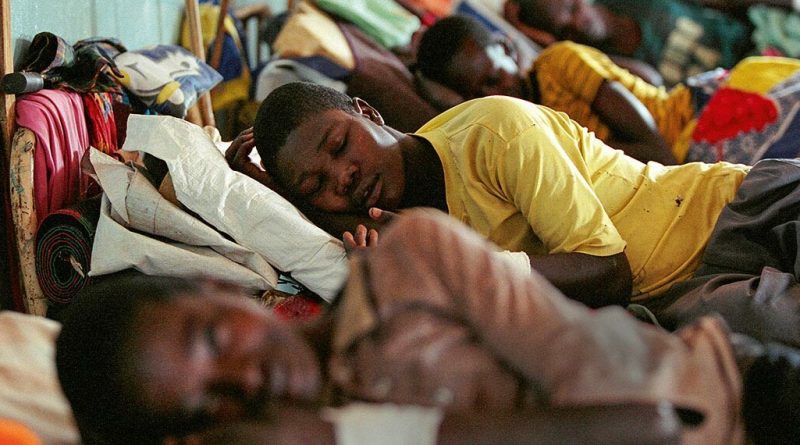On World Neglected Tropical Disease Day, over $7 million new funding announced to expand efforts towards sleeping sickness elimination in nine African nations
The Trypa-NO! partnership, a project run by FIND (https://www.FINDdx.org), the French National Research Institute for Sustainable Development (IRD), and the Liverpool School of Tropical Medicine (LSTM), has assisted Chad, Côte d’Ivoire, Guinea, and Uganda in their efforts to eradicate sleeping sickness. New funding from the Bill & Melinda Gates Foundation will build on this success. The money will enable the extension of activities into Angola, the Central African Republic, Sierra Leone, and South Sudan while also supporting sustainable, cost-effective techniques to create and maintain post-elimination surveillance programs. The Democratic Republic of the Congo and Angola’s national elimination programs will continue to receive support thanks to additional financing provided by the Canton of Geneva.
Today, on World Neglected Tropical Disease (NTD) Day, the Bill & Melinda Gates Foundation awarded nearly US$6.8 million to the Liverpool School of Tropical Medicine (LSTM), the French National Research Institute for Sustainable Development (IRD), and FIND, the global alliance for diagnostics, to continue the work of the Trypa-NO! partnership for an additional three years.
The Trypa-NO! collaboration is in favor of the eradication of sleeping sickness, often known as the gambiense form of human African trypanosomiasis (HAT) (https://bit.ly/2UdzLLD). The Trypa-NO! cooperation has so far helped Uganda and Côte d’Ivoire achieve elimination as a public health issue. The collaboration has also worked with Guinea and Chad, both of which are on schedule to reach this milestone soon. The additional financing will guarantee that each of these four nations has a viable, long-term plan to track the illness separately and stop transmission completely. Additionally, the grant will enable Trypa-NO! to start working in or expand its operations in Angola, the Central African Republic, Sierra Leone, and South Sudan.
The Canton of Geneva in Switzerland has also provided additional funding to FIND to support and expand initiatives in the Democratic Republic of the Congo and Angola that are aimed at integrating screening and testing at the primary care and community levels, educating healthcare professionals and communities, and creating plans for the two nations to pool their experiences and coordinate their efforts. With this assistance, the total new cash committed towards the elimination of sleeping sickness today, on World NTD Day, has increased to nearly US$7 million.
The elimination of HAT has been a top objective for the World Health Organization (WHO) for the past 20 years (https://bit.ly/3Yc7CRD). If ignored and untreated, this disease, which is spread by tsetse fly bites, can be lethal. It is difficult to monitor HAT since it is endemic to 36 nations in sub-Saharan Africa and mostly affects people in isolated and rural locations. Fortunately, the eradication of HAT has become a feasible goal thanks to coordinated efforts by national programs, assisted by public-private partnerships, NGOs, philanthropists, and academia. The incidence of sleeping sickness has drastically decreased in recent years, especially in Western and and Central Africa, where the gambiense form is found it was once estimated that 30,000 cases had been reported at the turn of the century (https://bit.ly/3DosaON), and has decreased to less than 1,000 cases annually since 2018.
The diagnosis, treatment, and tsetse fly control are all incorporated into the Trypa-NO! partnership, which was established between FIND, IRD, and LSTM in 2016 to support national efforts to eradicate sleeping sickness. In order to improve the efficiency of HAT screening in remote locations, the collaboration has implemented cutting-edge techniques like quick diagnostic testing and supported capacity building and training of healthcare staff. The project also uses panels of fabric impregnated with pesticide (referred to as “small targets”) to attract and kill tsetse flies, as well as community-level diagnostic data to help target its screening activities.
The cooperation will be able to build on prior accomplishments and enter a new phase of support for various nations over the next three years thanks to the new Trypa-NO! funding. Given the low and declining HAT numbers, Chad, Côte d’Ivoire, Guinea, and Uganda are now refocusing on a goal of zero new infections by adapting current approaches and enacting country-specific, tailored strategies that are sustainable, integrated, and affordable, with strengthened country-level data management for strategic decision making. Support for Trypa-NO! will progressively decrease.
The Trypa-NO! cooperation will also assist Angola, the Central African Republic, Sierra Leone, and South Sudan in taking steps to eradicate the disease and prevent its reintroduction into regions where the number of cases has been significantly reduced.
The Trypa-NO! program extension will start in the first quarter of 2023 and last for three years. Up until 2025, FIND will continue to support the DRC and Angola’s elimination initiatives. Through funding to FIND, the Bill & Melinda Gates Foundation and the Canton of Geneva support the project.




